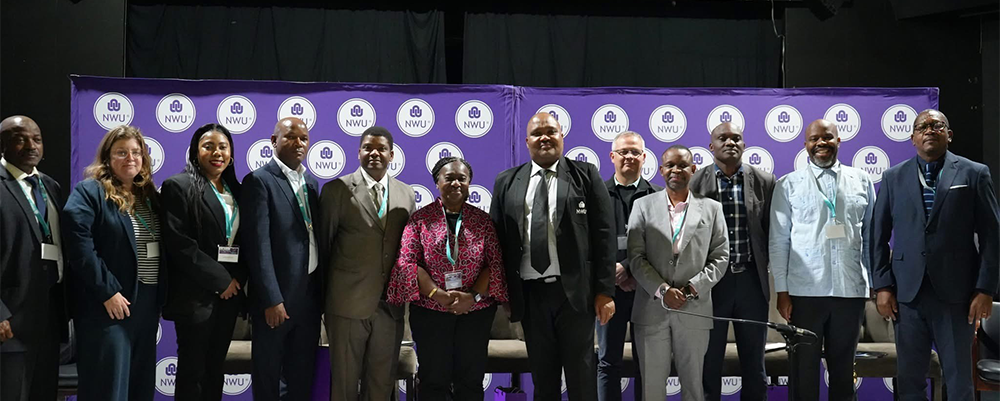Research is at a crossroads, but the choice facing researchers is clear: make a difference to the world’s most pressing problems or be relegated to irrelevance.
“We are reminded that the decisions we make regarding the type of research we prioritise will either be the turning point towards a more sustainable and equitable world, or a missed opportunity by which history will judge us harshly,” said Prof. Bismark Tyobeka, principal and vice-chancellor of the North-West University (NWU) at the opening of NWU Research and Innovation (R&I) Week.
The event, taking place from 18 to 22 August at the Mmabatho Convention Centre, is being held under the theme “Transdisciplinary and transformative research: building sustainable futures”.
Academics, postgraduate students, postdoctoral fellows, industry partners and stakeholders are gathering throughout the week for debates, workshops, poster exhibitions and keynote sessions. The programme includes Postgraduate Day, Postdoctoral Day and Research Security Day, all linked to the theme.
This generation must end poverty and address climate change
In his keynote address, Prof. Tyobeka stressed the role of research in addressing societal issues.
Quoting former United Nations Secretary General Ban Ki-Moon, he said: “Ours can be the first generation to end poverty, and the last generation to address climate change before it is too late.”
He reflected on the need for increased national investment in research: “The South African Science, Technology and Innovation Indicators Report shows that our nation’s gross domestic expenditure on research and development is still marginally under 1% of the national GDP. This is a reality that demands renewed commitment and strategic investment. It is far below Organisation for Economic Co-operation and Development (OECD) countries’ average of over 2%.”
He pointed to the role of universities in advancing the United Nations Sustainable Development Goals (SDGs). “All of us must be aware of the SDGs, and the crucial role that the higher education sector has in co-creating knowledge and innovations that allow progress in all the 17 goals.”
Sharing the NWU’s current position within the higher education sector, Prof. Tyobeka said the university has over 58 000 students, of whom 12% are postgraduates. The aim is to increase that proportion to 20%.
Cross-border collaboration is crucial
He also touched on the importance of cross-border partnerships. “Internationalisation at the NWU is not incidental; it has emerged as one of our foremost strategic priorities. We engage deliberately with partner institutions all over the world, including but not limited to Europe, Asia, North and South America and across the African continent.”
Prof. Tyobeka referred to the Africa Higher Education Centres of Excellence initiative, which has produced thousands of graduates and research outputs across the continent. “These figures are compelling evidence that strategic, cross-border collaboration delivers tangible results, and we must pursue it with even greater intent,” he said.
In closing, he said the university’s actions should be guided by the theme of NWU R&I Week: “Our theme, ‘Transdisciplinary and transformative research: building sustainable futures,’ cannot be allowed to remain in the realm of rhetoric. It must be embedded as the organising principle of how we teach, how we research, and how we serve society.”
Let us all remember that the measure of this gathering will not be in the words we speak here, but in the boldness of the actions we take when we leave this room.”

NWU principal and vice-chancellor Prof. Bismark Tyobeka with dignitaries, academics and stakeholders who attended the opening of NWU’s Research and Innovation Week.
